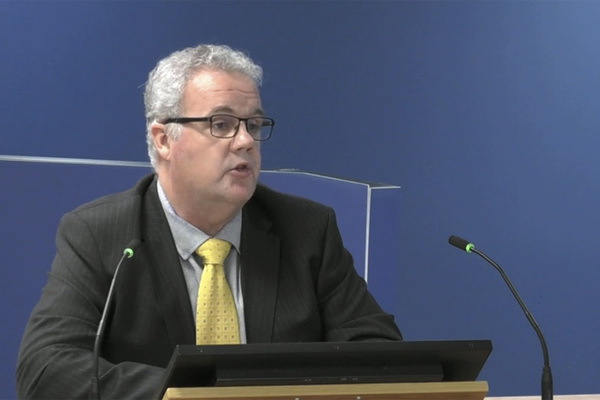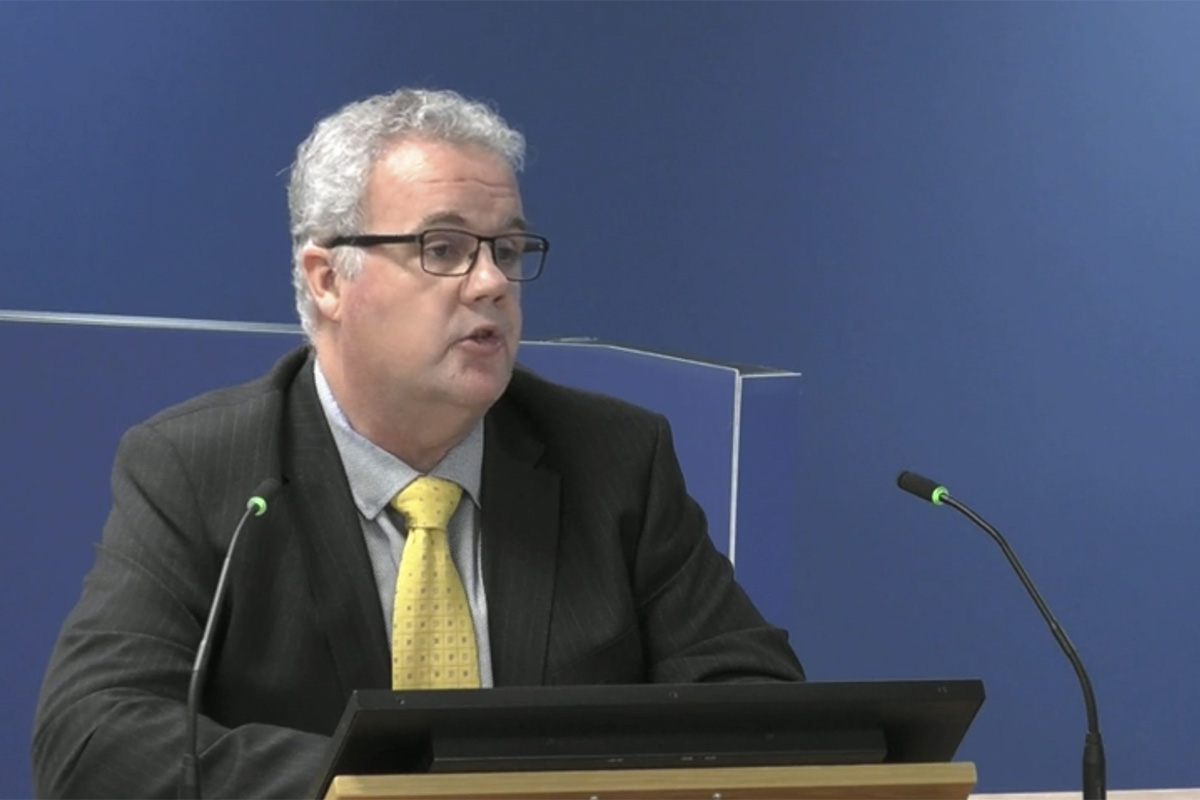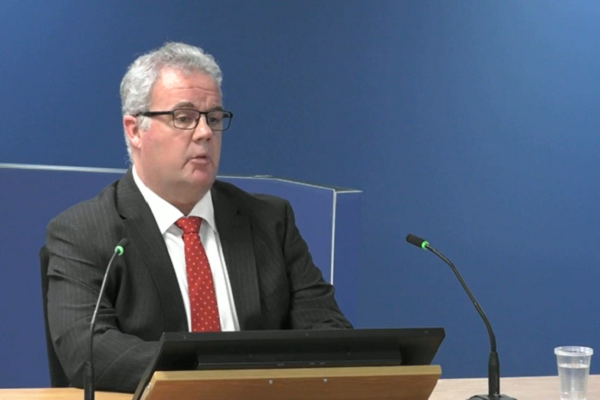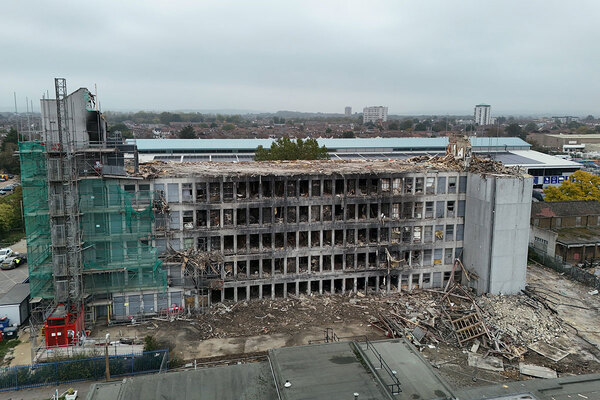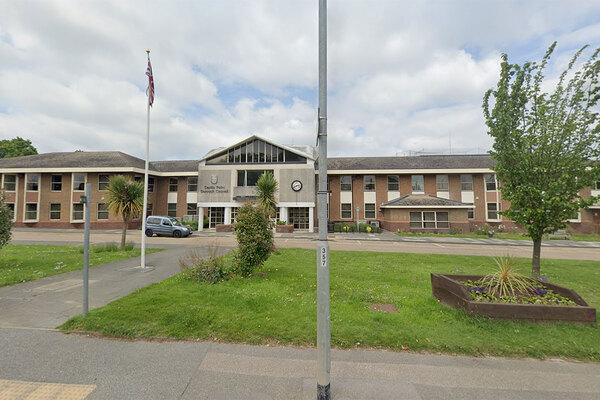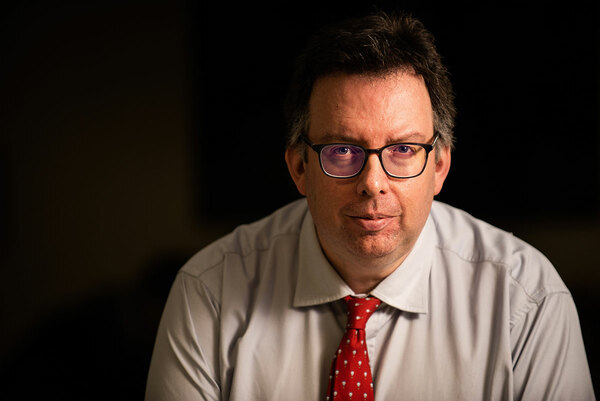You are viewing 1 of your 1 free articles
LFB training on advice to trapped residents limited before Grenfell amid ‘budgetary constraints’, inquiry hears
Training for London Fire Brigade (LFB) control room operators on giving advice to residents trapped by fire, promised after the deadly Lakanal House fire in 2009, was limited amid budgetary constraints and struggles with a new IT system, the Grenfell Inquiry heard today.
Scott Hayward, former operations room manager at the LFB, admitted that between 2013 and 2017 the training provided to control room staff did not cover all the criteria promised by the LFB to the coroner responsible for the inquest into the 2009 Lakanal House fire.
Six residents died in this fire, all of them after being told to stay put in their homes by control room staff, who are responsible for giving advice to emergency callers during a fire.
In the year following the fire, the LFB introduced a new annual refresher training programme for control room staff on fire safety guidance (FSG) calls.
The training programme was agreed by the Lakanal board within the LFB, which oversaw its response to the fire, and promised to the coroner as part of the inquest into the fire.
Yesterday the inquiry learned that after 2010 the LFB deviated from what was originally promised to the coroner by changing the role play exercise in the training to a passive exercise and reducing the length of the training from one full day to one half day.
Today the inquiry learned that the LFB also began to reduce the involvement of fire safety officers (FSOs) in the delivery of training, despite national guidance stating that FSOs should deliver this training.
As part of a witness statement from an area commander within the LFB, the inquiry heard that “performance targets and budgetary constraints facing the brigade” led to a decision being made that fire safety officers should not deliver the FSG call training to control room staff.
Following this decision, an internal email was sent by Joanne Stibbards, a senior operations manager at the LFB at the time, which said: “Before we have even started our annual refresher training, we are already being told we have lost fire safety input into a course which [national guidance 10/93] specifies should be in the course. Part of the issues rising from Lakanal is that we had no fire safety input and therefore did not provide staff with correct and relevant advice.”
During today’s evidence, Mr Hayward agreed with lead counsel to the inquiry Richard Millett QC that between 2013 and the Grenfell Tower fire in June 2017, “existing control staff never received a full day of FSG refresher training with role play and fire safety delivery that had been planned and approved by the board and promised to the coroner after the Lakanal House fire”.
When asked why that “trinity of essentials” was missing for four years, Mr Hayward said this was largely due to the LFB transferring its IT system during this period.
This process was lengthy and ended up occupying all of the training staff’s time, Mr Hayward explained.
Figures provided to the inquiry by Mr Hayward showed the percentage of control room staff receiving annual FSG refresher training fell from 94% in 2011 to 0% in 2015. In 2016, 45% of staff received training, while 32% received training in 2017.
Mr Hayward said he thought the numbers may not be accurate due to limitations with the LFB’s system for recording training, however he did confirm that no refresher training took place in 2015 and no refresher training took place in the first half of 2017, before the fire at Grenfell.
“The period between 2009 and 2017 as a whole has been a very busy period with significant staffing issues, system problems and restructuring. During this time there has not been much stability in which to fully take stock of training needs and deliver all of the training that we would have liked staff to receive,” Mr Hayward said in his witness statement.
Yesterday the inquiry heard that the LFB planned to provide in-person FSG call training every second year, with training being delivered on computers in the years in between.
However from 2012, when LFB’s training was outsourced to an external company, some staff members were unable to access the computer training and it could not be updated by LFB staff, Mr Hayward told the inquiry today.
In 2017, an internal LFB review highlighted a number of problems with training for control room staff, including the fact that shift patterns made it difficult to find time for training.
“Were you not struck by the fact that here you were some eight years after the Lakanal House fire and some four years after the coroner’s recommendations, give or take a month, and ask yourself how could it be that we are still in a position where there is a lack of regular maintenance and skills training in relation to the control room?” asked Mr Millett.
In response, Mr Hayward reiterated the “significant amount of other training” taking place within the control room during this period, including training on the new IT system.
The inquiry’s report into the night of the fire found “serious shortcomings” within the control room, including the failure of staff to tell residents to leave the building and offering assurances that they would be rescued.
“Do you accept the conclusion, combined with the LFB’s own findings in the Lakanal control report about the lack of structured regular FSG training revealed, I have to suggest this to you, that LFB’s FSG training for control staff over the course of a 23-year period from 1994… to the night of the Grenfell Tower fire on the 14th of June 2017 was systematically deficient?” asked Mr Millett.
“No, I think we did learn from Lakanal. I think we did implement a series of training to address those issues, although as you’ve already established, not always in line with the policy and I think the mitigation that I’ve laid out in my three statements and spoken about these past three days answers why we couldn’t do the training we wanted to do,” Mr Hayward replied.
The inquiry continues tomorrow.
Sign up for our weekly Grenfell Inquiry newsletter
Each week we send out a newsletter rounding up the key news from the Grenfell Inquiry, along with the headlines from the week
Already have an account? Click here to manage your newsletters
